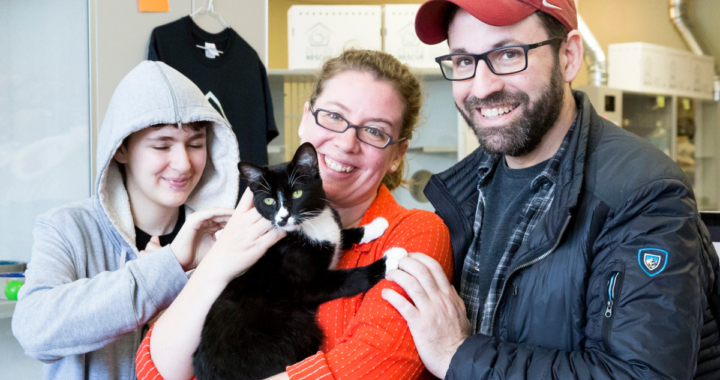Taking New Kitty Home
Litter Box Use
Microchip Registration
- SAFe Rescue will register your feline’s microchip via Found Animals Registry. Look out for a welcome email from them—you’ll use it to log into your account and confirm that the information we sent them is correct. Found Animals is free for you to register, use, and update!
- Be sure to keep your contact information current with Found Animals: you can find instructions on updating your info at found.org.
Behavior Tips
- Does your young cat need a feline friend? Learn more about Single Kitten Syndrome
- Need additional help? You can find a list of resources on our Behavior page.
Medical Information
- Your cat has received an FVRCP vaccine. (You can find your cat’s vaccination history in your adoption paperwork.) The FVRCP vaccine helps protect cats from feline viral rhinotracheitis/feline herpesvirus 1, calicivirus and panleukopenia. It is considered “core” to your cat’s health. Your cat may need additional vaccines. Consult your veterinarian to determine an appropriate vaccination schedule.
- Your cat may or may not have received a rabies vaccination, while in our care. (You can find your cat’s vaccination history in your adoption paperwork.) Rabies is a vaccine that must be administered by a veterinarian. It is required by law. (Code of King County Board of Health, Chapter 8.04, Rabies)
- Your cat may or may not have been screened for FIV/FeLV. (You can find your cat’s screening history in your adoption paperwork.) It is recommended that your cat be tested or re-tested by your veterinarian. Please consult your veterinarian on what is best for you and the cat.
- Your cat has been treated for fleas.
- Your cat has received pyrantel pamoate, a drug that treats roundworms and hookworms. Your cat has also received ponazuril, a drug that treats protozoal and coccideal infections in cats. Although your cat has received these medications, this does not mean that your cat does not have a parasite or infection. We recommend taking a fresh stool sample from your cat to the vet for parasite testing.
- Your cat may have had additional treatments, medications, or tests. Consult your adoption paperwork for details.
- If you have other pets at home, we advise you to keep existing cats separated from newly adopted cats until you get a chance to discuss vaccines and testing with your veterinarian and any recommended follow-up tests have been performed. Any additional vaccinations, testing or treatments are at the adopter’s expense.
- To schedule your free initial veterinary examination, contact All Pet Vet (206-365-1102),Cascade Pet Hospital (206-362-3668), or any participating veterinarian.
NOTE: It’s not uncommon for rescued cats and kittens to come down with the following after they are adopted:
- URI (Upper Respiratory Infection)
- Diarrhea, vomiting
- Ringworm
- Runny Eyes
Transitions can be difficult, and making an appointment with the vet as soon as possible will help make the change less stressful for you and your new family member.

